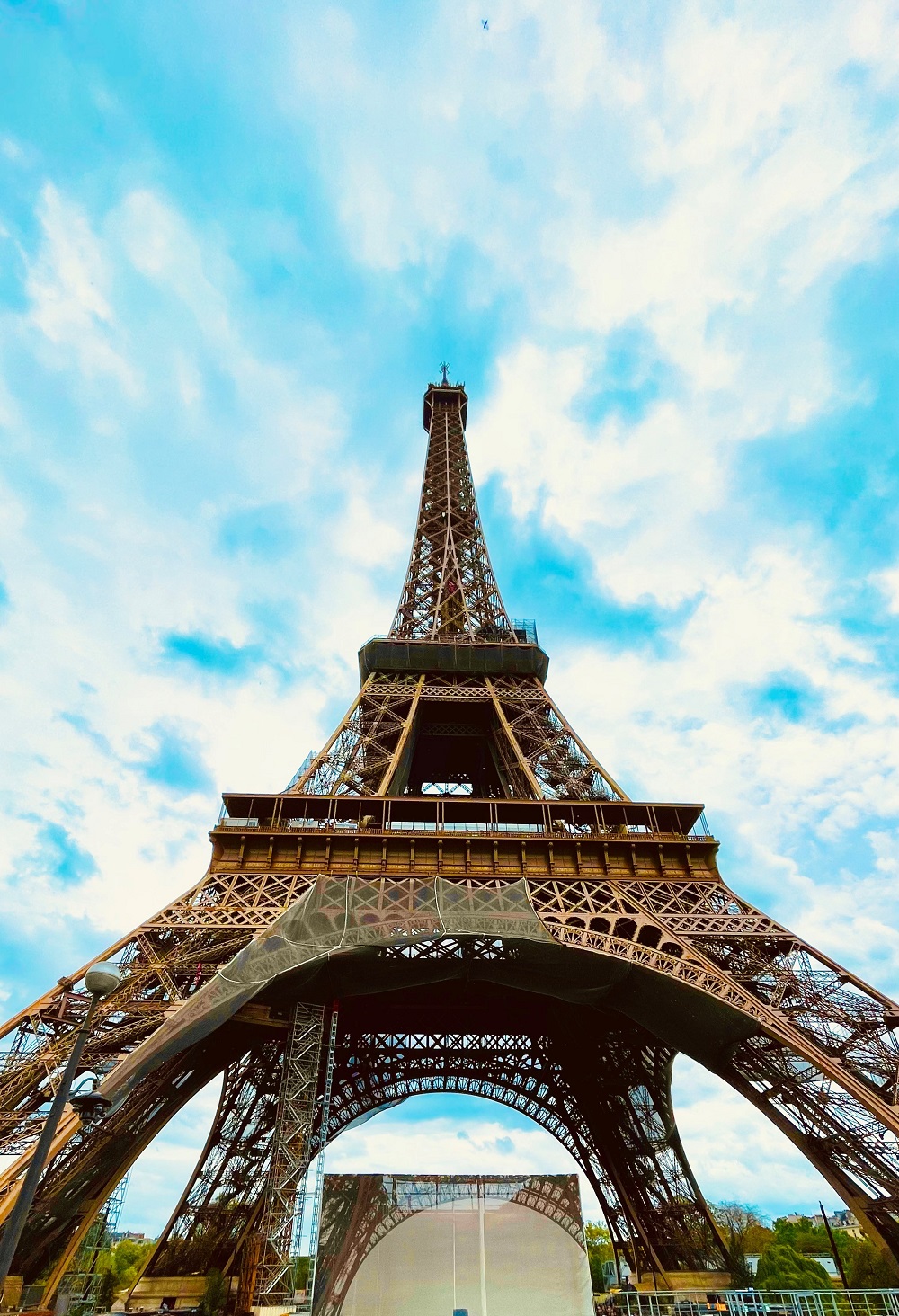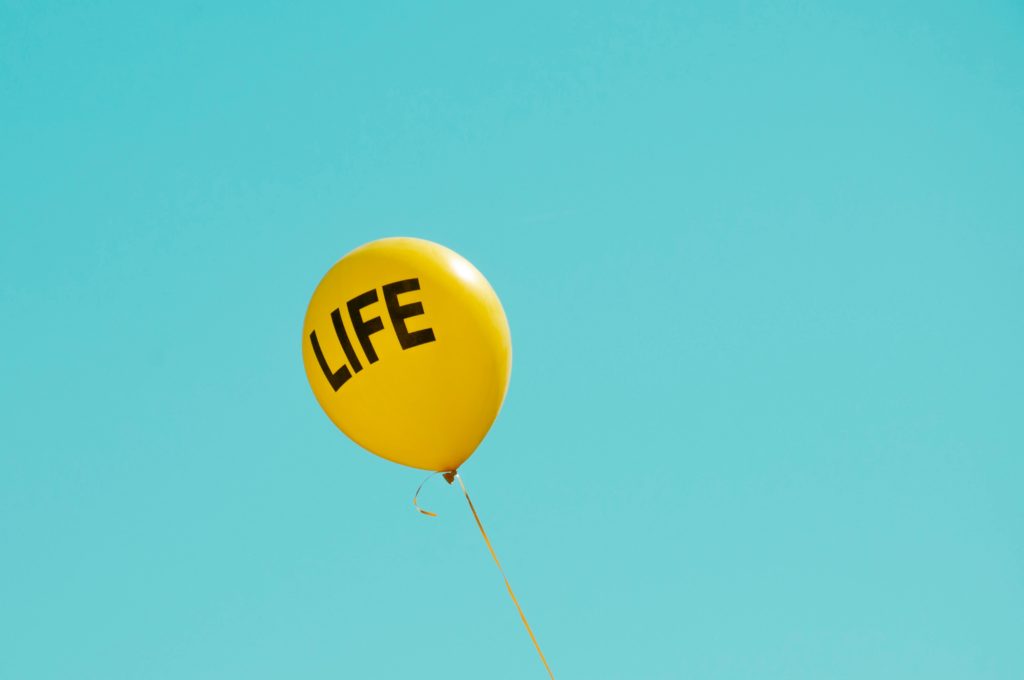They say Paris is the city of love.
I beg to politely differ. For me, Paris was a city of lights and hustle.
Barcelona, on the other hand, could have easily embodied that metaphor, as I felt that it had more romance lingering in the air than people give it credit for.
First, let me tell you why.
Let’s start with:
PARIS
Travelling to Paris in the spring has its charms.
The weather is cold, perfect for someone flying in from the heat of Lagos, Nigeria, where only five minutes outdoors is enough to reduce you to a melting popsicle. While people hurried down the streets of Paris huddled beneath a layer or two of wool or leather, I was quite happy to explore the streets covered in long-sleeved cotton shirts, deciding on what to do in Paris, and allowing the spirit of Spring to get to me in all its glory. This, of course, meant that I was not in too much of a hurry, and I had ample time to chitchat with locals and find out more about what really makes Paris tick – this melting pot of cultures and stories, as I was soon to find out.
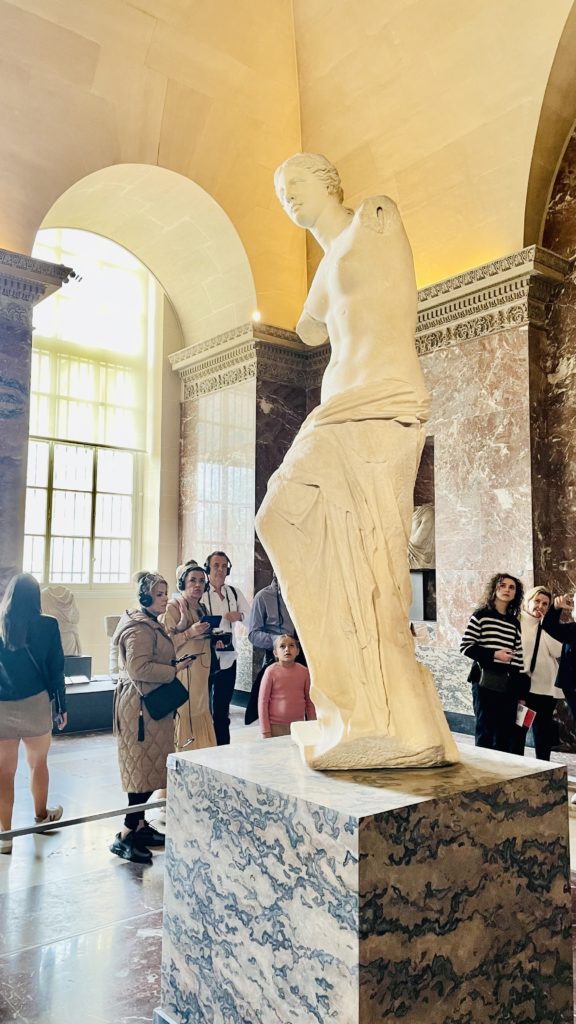
The Turk who knew Okocha
The first person I got the chance to really converse with was a young man in a Turkish restaurant who helped interpret my lunch order as I struggled to neatly conjugate in my head verbs long forgotten (the verb “manger”, anyone?). He appeared as if from nowhere behind the counter and smoothly placed my order.
By the way, if you are in Paris, you absolutely must try the food from any nearby Turkish restaurant. Delicious.
And when I responded to his question about where I was from, he was quick to reply with a bright smile: “Ah, Okocha.”
At last, a word that bonded us in a place where French is served as hot as its fries. Case in point, I was in Paris for a two-week study leave, and my lecturers were from different cultures: a Chinese who had lived in Japan for the past decade or so and was in town specifically for his lectures, and a German lecturer who immigrated into France to join her husband many years ago: her accent was a refreshing mix of both cultures.
Beyond the multicultural blend of Parisians, the city seemed more inclined to look down its nose at those who could not pull off average French. You are more likely to unwittingly spend much more money and get looks of impatience if you are unable to converse and articulate your needs fluently in the local language. But hey, it’s hardly their fault – courtesy demands that when you are in Paris, you behave like the Parisians.
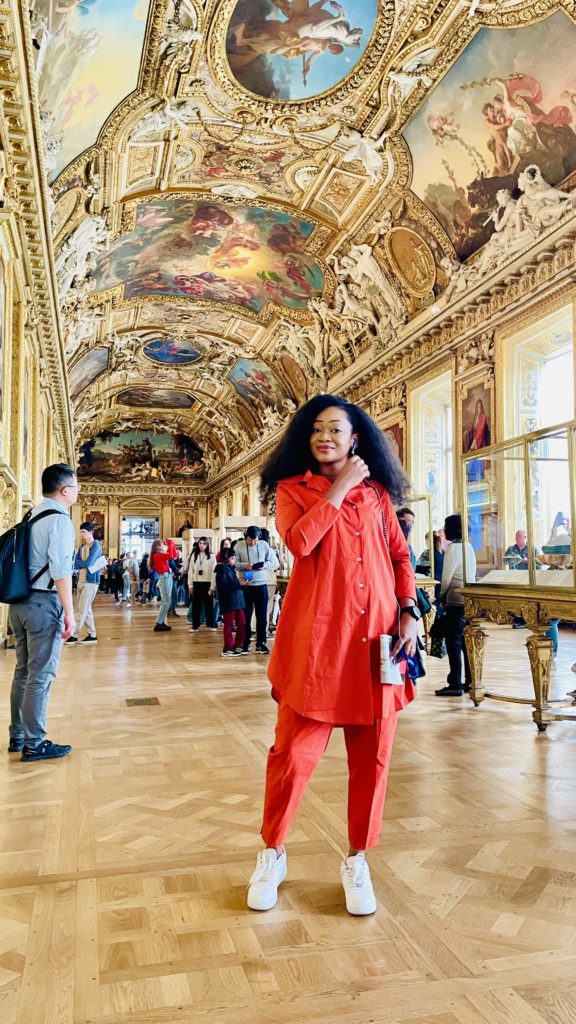
The Congolese Driver who was Once a Soldier
Another interesting character was an Uber driver with whom I engaged in a long conversation on a ride back from a day of typical tourist sightseeing behaviour. A black African, he was quite chatty and pleased to open up to this Nigerian who had once visited his home country, the Democratic Republic of Congo. The moment I mentioned that I had been to DRC in the past, his face lit up, his voice grew louder as is quite typical of happy Africans, and I could tell from his tone that he was super impressed.
Impressed enough to tell me his story.
Mr. X, let’s call him that, was in the military and had a run-in with the government back in the day, so he said. He fled DRC almost eight years ago for France, leaving his beloved home and family behind. I could hear the nostalgia in his voice as he painted stories of Kinshasa and asked me where and where I visited when I landed in Kinshasa. Did I go to this hotel or that other place? By the end of the ride, Mr. X offered to take me around Kinshasa if I ever were to visit, as he said he would make his way back home soon.
Although Mr. X missed home, he was so proud of his accomplishments in Paris.
“Here, I can work and earn a living, although it was difficult at first,” he boasted in broken English, punctuated by French verbs. Most of our conversation was aided by the syrupy voice of the Google lady, who attempted to translate Mr. X’s French to English and vice versa when it was my turn to speak.
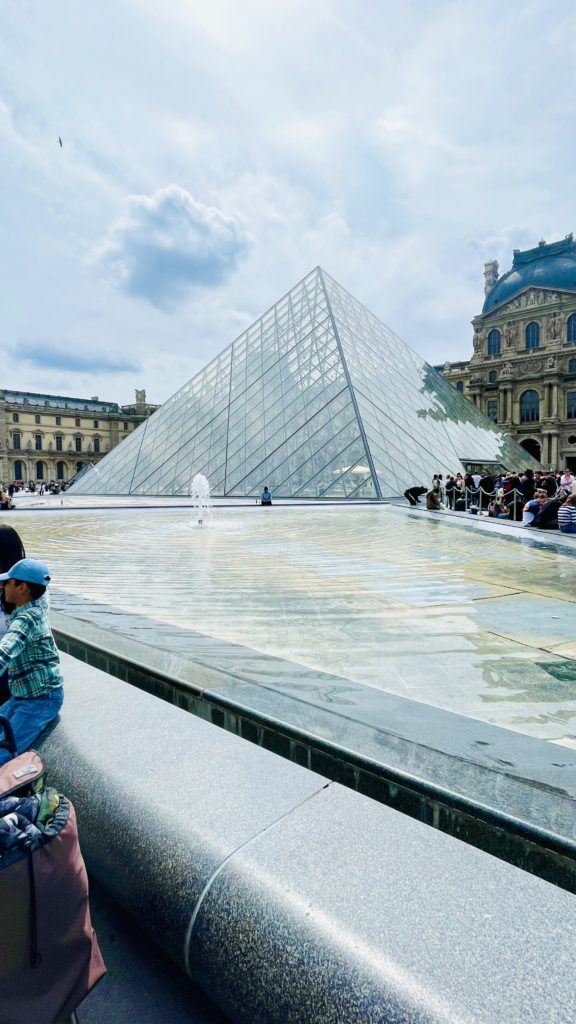
In his eight years in Paris, he acquired a fleet of cars registered to work as taxis. He was earning enough money, part of which, he said, he wired home through the United Bank for Africa (UBA). The car I was being driven in was a sleek, black Mercedes E350 in perfect condition; it was difficult to doubt his story. At some point, he showed me his screensaver: a photo of his younger self in his military attire. I was, by then, awed, and when he proceeded to make me feel uber-welcome in his taxi by treating me to songs by homeboy, Rema, I was sold. He swore he loved Nigerian music and movies from our Nollywood.
At that point, I knew a five-star rating was in his immediate future.
His story was emotional. I tried to imagine being away from my family and my home for eight years, rebuilding my life among strangers, and running a business in a country with different laws. His story is the same as thousands of people who leave Nigeria and other African countries in search of the golden fleece; some find the gold pot, and others don’t.
The Tall Glass of Martinique
Lucas (not his real name) was another taxi driver with an interesting story.
He was brought to Paris by his parents when he was nine years from Martinique, an island close to South America. Lucas looked no more than twenty-five, his fair skin and buzz fade haircut made it difficult for me to place where he was originally from so his story was enlightening. When I responded to the now-familiar question of where I was from – Nigeria – his voice grew warmer, and he was quick to tell me that he had a lot of Nigerian friends and that he enjoyed our movies.
“Was I an actress?” he asked. Lol, the Nigerian in me was flattered but would not allow myself to take credit for the hard work of my fellow countrymen.
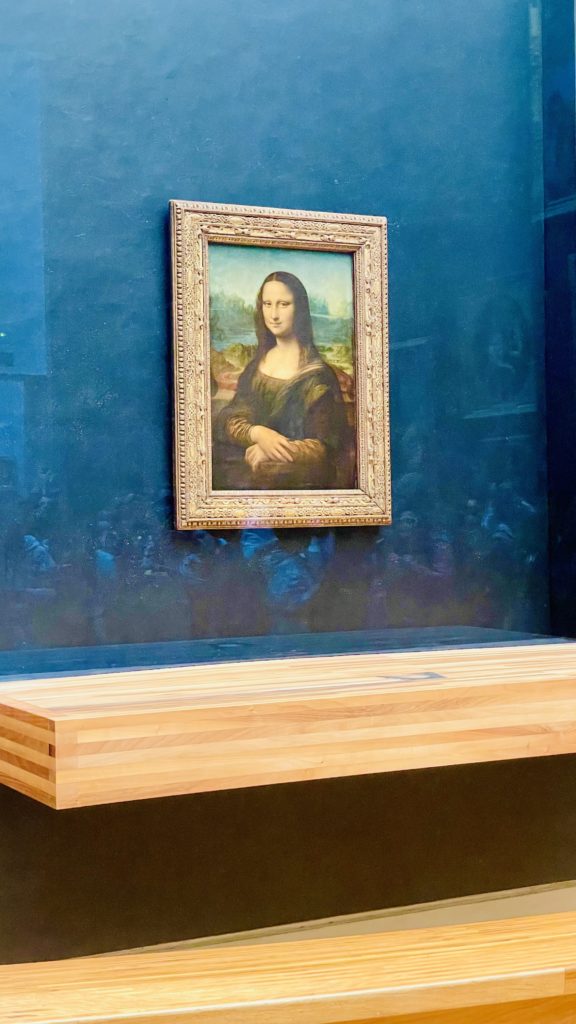
A City with a Cold Past and a Warm Facade
Aside from the people, what I really enjoyed in Paris was the intentionality of preserving history. From viewing first-hand the mysterious smile of the Mona Lisa at the Louvre (Mr. Da Vinci ought to have left a note to tell us why he never returned the painting of someone else’s wife to the person who commissioned him), to feeling the chills at the Place de la Révolution (now named Place de la Concorde) where the fabulous historical figure, Queen Marie Antoinette, was beheaded, every corner of Paris oozed an Edwardian charm that could easily transport me back to a time where carriages plied cobbled streets and a wrong word could earn you a trip to the gallows.
Even the design and layout of the streets were geometric. As someone who studied fine arts, I appreciated the beautiful layout and the deliberate perspective in every corner, the way the streets met at a perfect point in the horizon, as if drawn by masters of the art. Several times, I caught myself wanting to lift a pencil in front of me, one eye shut, an activity that precedes a sketch. This beauty was more evident in the city centre.
Farther out of the centre, the city was shockingly in need of cleaning. But who am I to judge when the speck is large in my eye?
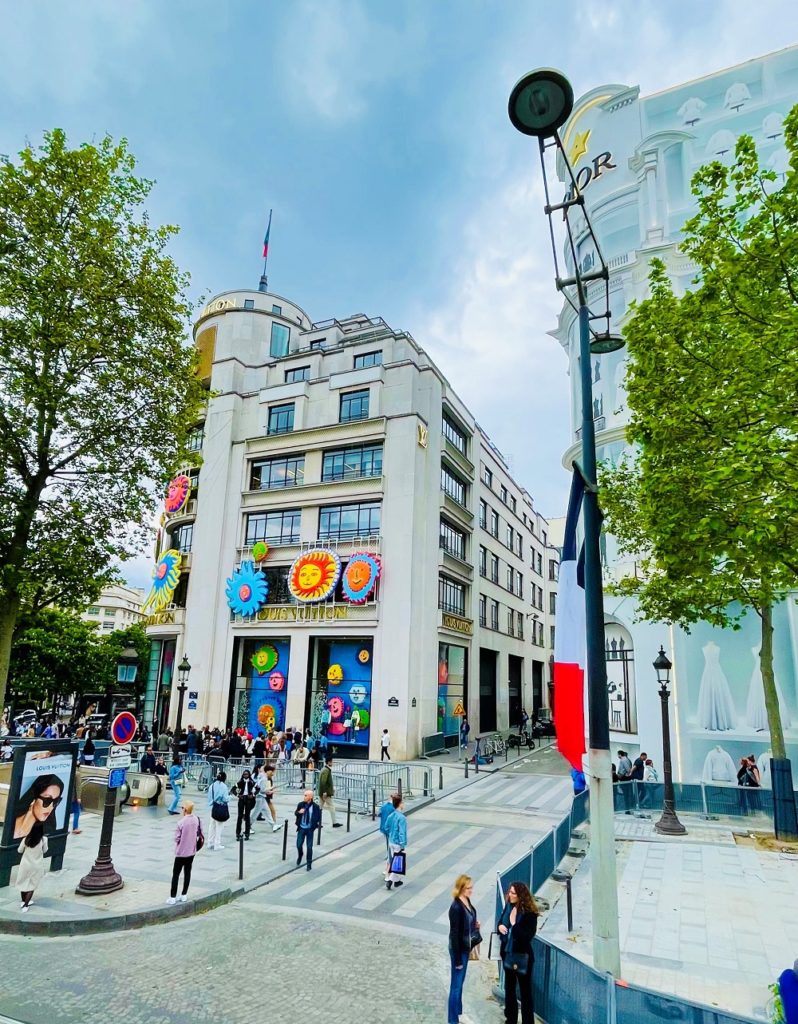
Verdict
I was expecting to see or feel the love in Paris as it is purported to be, but I was crushed by the stark difference between what the city was supposed to be or perhaps my expectation of the city of love, and the reality of the lives of its residents who embraced coats and lighters (hardly hands) in search of warmth. It seemed as if the hands of Spring were cold enough to keep lovers apart, or maybe, my camera was looking in the wrong places.
But Paris was charming, no doubt about it.
Barcelona, on the other hand, was, well..quite a different story…
stay tuned…

